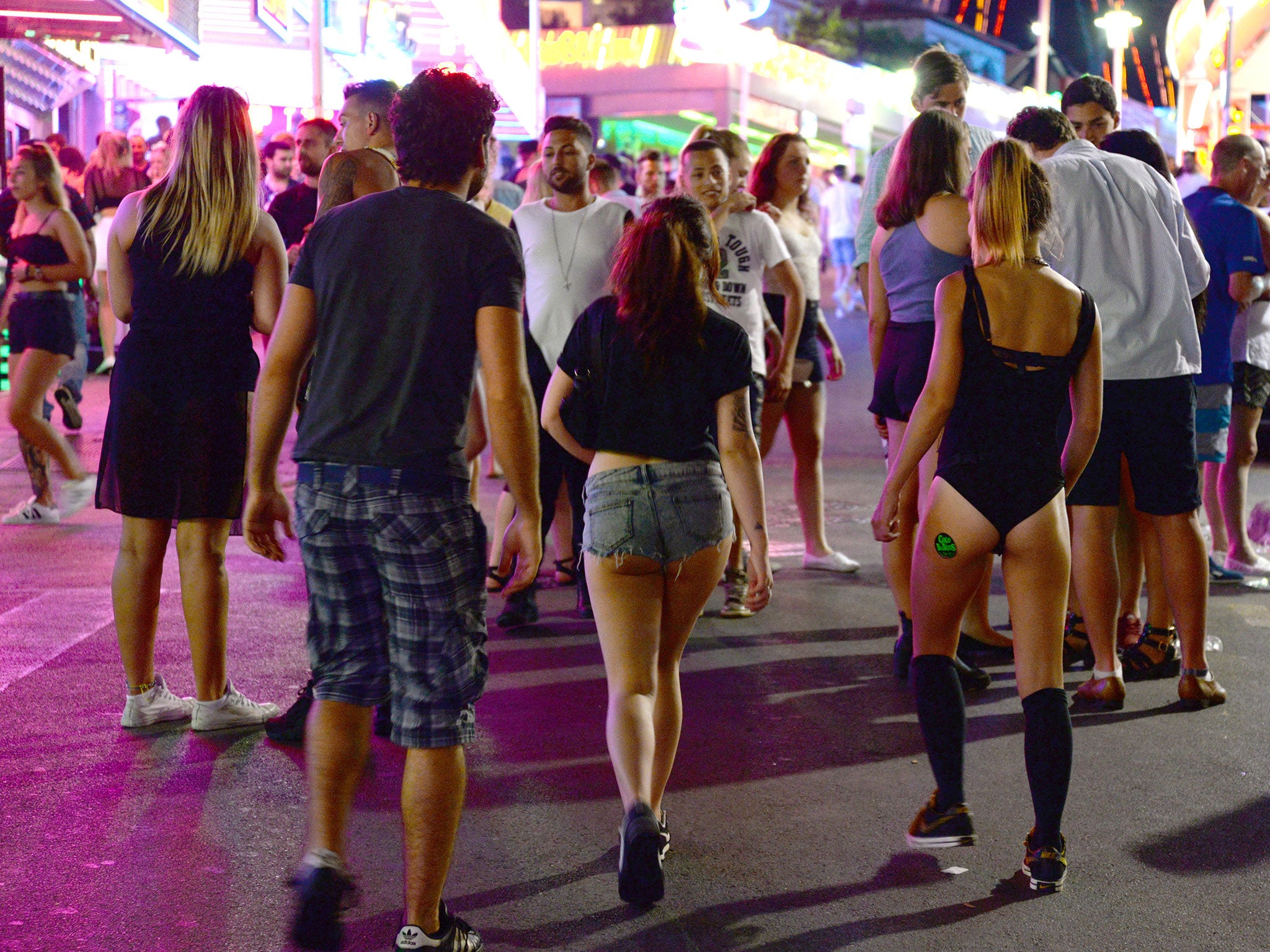Magaluf crackdown: Majorcan resort fails to tell British tourists it has cleaned itself up
Notwithstanding the new fines for drunkenness, bars seem just as keen to rake in the cash

Your support helps us to tell the story
From reproductive rights to climate change to Big Tech, The Independent is on the ground when the story is developing. Whether it's investigating the financials of Elon Musk's pro-Trump PAC or producing our latest documentary, 'The A Word', which shines a light on the American women fighting for reproductive rights, we know how important it is to parse out the facts from the messaging.
At such a critical moment in US history, we need reporters on the ground. Your donation allows us to keep sending journalists to speak to both sides of the story.
The Independent is trusted by Americans across the entire political spectrum. And unlike many other quality news outlets, we choose not to lock Americans out of our reporting and analysis with paywalls. We believe quality journalism should be available to everyone, paid for by those who can afford it.
Your support makes all the difference.This year, it was all meant to be different. The authorities in the Majorcan resort of Magaluf said that wild stag weekends and other group holidays would face a crackdown in 2015 – and that lewd behaviour by Britons and other nationalities would no longer be tolerated. Sadly, it has now emerged that nobody has told the tourists.
For more than 20 years, Magaluf has been one of the resorts of choice for groups of mostly British young men and women who want to let their hair down and, in most cases, get utterly drunk on the cheap, fast-flowing alcohol.
The town’s authorities have fought to balance the competing interests of local residents and bar owners, who welcome the easy-spending visitors. Last year, after a number of particularly outrageous incidents, local officials announced that, with more than €100m (around £70m) being spent on building up-market new hotels, the time had come to “raise standards” and “develop mature areas” in the resort.
But at the weekend, evidence that their efforts have so far failed to bear fruit arrived with the emergence of a video showing a young British couple – or at least, they were briefly a couple – having sex behind the bins of a shop.
The film, which has been viewed more than 170,000 times on the adult website to which it was uploaded, follows the notorious video filmed last year in which a young British woman was seen performing simultaneous sex acts on 24 men in a British-owned bar – all for the promise of a free cocktail.
The arrival of more upmarket hotels, whose owners have pressured local officials to clean up Magaluf’s image, has been followed by new by-laws, including fines of €2,000 for anyone helping the resort live up to its crude nickname, “Shagaluf”. There are also fines for drunkenness, rowdiness, and even for men walking around without a shirt.
The Guardia Civil, one of Spain’s police forces, has advised bar owners how to sell alcohol more responsibly, and promised more patrols at night time. But it is all nonsense, claimed one restaurant owner, who says the authorities are much keener to rake in the cash that the tourists bring. “We’re having our busiest summer in ages,” said Silvia Innes, the owner of the resort’s Godfather’s restaurant.
“These things have been happening for the 20 years I’ve been here and they aren’t changing. Youngsters come to drink and let their hair down. And of course, there’s the sex, that’s nothing new. It’s just the technology that now allows videos to be uploaded to the internet. The police said they’ll crack down on it all, but they’re not out and about – nothing’s changed at all.”
Nor is this kind of behaviour confined to Magaluf. Hard on the heels of that shocking video came another film, this time in the ancient university town of Salamanca, showing young women stripping and kissing other partygoers at a swimming pool in the city – although it is unclear what nationality they were.
British officials insist it is only a minority of Britons who get into trouble in Magaluf – and meanwhile Spain depends heavily on tourism, which contributes more than 6 per cent of the country’s overall GDP.
However, local governments across Spain are trying to limit cheap and down-market tourism. In Barcelona, the new mayor is considering a tax on private tourist rentals, such as Airbnb, while in the Canary Islands, the new local government head is investigating how to limit visitors as a way of protecting the environment.
Join our commenting forum
Join thought-provoking conversations, follow other Independent readers and see their replies
Comments